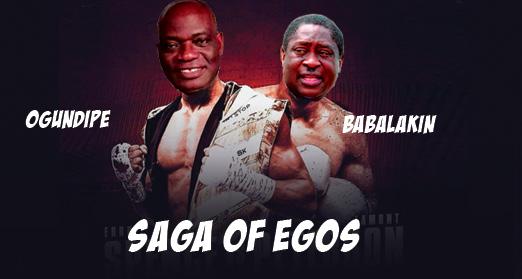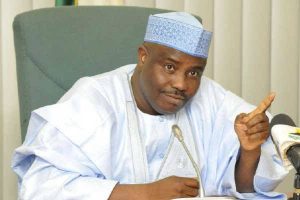
Laws are made to define correct procedure and to regulate actions of members of a body, organisation, country, and social entities. To prevent ambiguity or other confusions that may arise due to subjective interpretations, lawyers study law and offer their expertise to the unlearned. This goes for most countries including Nigeria. Becoming a Senior Advocate of Nigeria (SAN) is probably one of the most desired positions Nigerian lawyers aspire to, especially considering the years of practice required and the rigorous selection process involved. It would not be remiss then to assume that if junior advocates may be guilty of misinterpreting the law occasionally, SANs should not suffer from the same error. Such blunders as this, have made the recent debacle involving Dr Wale Babalakin, who is both a doctor of Law and a Senior Advocate of Nigeria, and the University of Lagos a dicey matter to judge. Are the actions of the Babalakin-led Governing Council due to a misinterpretation of the law or some other factors?
The Universities Miscellaneous Provisions Act of 2003 as amended, also known as the University Autonomy Act, directs all federal universities to have a Governing Council that will, among other things, be responsible for the appointment and removal of Vice Chancellors (VCs) and other principal officers following laid-down procedures. The Council is to consist of different members representing different stakeholders including a Pro-Chancellor, a role appointed by government. The Pro-Chancellor also chairs the Council. Dr. Wale Babalakin was appointed as the Pro-Chancellor of the University of Lagos (UNILAG) in April 2017.
Since one of the duties of the Governing Council is to ensure that disbursement of funds of the University complies with the approved budgetary ratio, in 2018, the Babalakin-led Council commissioned a sub-committee to audit the May 2017 – September 2018 university expenditure. In 2019, the committee, led by Dr Saminu Dagari, presented their report which indicted the then vice chancellor Professor Oluwatoyin Ogundipe and some other principal officers of the university. The bulk of the report’s allegations bordered on financial mismanagement and illegal awarding of contracts.
To be fair, Professor Oluwatoyin Ogundipe was allowed to address the allegations against him which he did in a response titled ‘That University of Lagos May Know Peace: Submission of Prof. Oluwatoyin Ogundipe, Vice Chancellor, University of Lagos, to the Governing Council’ at its special meeting on May 13, 2019.
Whether or not Ogundipe’s response satisfied the Babalakin-led Governing Council is not clear, but Professor Ogundipe remained in office from May 2019 when he gave his response, till August 2020. The Universities Autonomies Act 2003 clearly specifies what should be done if a Vice Chancellor’s conduct gives room for suspicion. Babalakin would have been well within the law if he followed the laid-down procedure, but he thought and acted otherwise.
The steps to remove a Vice Chancellor as contained in Section 3 subsections 8-12 of the Universities Autonomies Act 2003 are stated in these terms:
(8) The Vice-Chancellor may be removed from office by the Governing Council on grounds of gross misconduct or inability to discharge the functions of his office as a result of infirmity of the body or mind, at the initiative of the Council, Senate or the Congregation after due process.
(9) When the proposal for the removal of the Vice-Chancellor is made, the Council shall constitute a joint committee of Council and Senate consisting of-
(i) Three members of the Council one of whom shall be the Chairman of the committee,
(ii) Two members of the Senate, provided that where the ground for removal is infirmity of the body or mind, the Council shall seek appropriate medical opinion.
(10) The Committee shall conduct investigation into the allegations made against the Vice-Chancellor and shall report its findings to the Council.
(11) The Council may where the allegations are proved remove the ViceChancellor or apply any other disciplinary action it may deem fit and notify the Visitor accordingly provided that a Vice-Chancellor who is removed shall have right of appeal to the Visitor.
(12) There shall be no sole administration in any Nigerian University.
One would expect Babalakin as a Senior Advocate of Nigeria to have a perfect understanding of this process; but knowing the law and obeying it are apparently two different things. In an emergency Council meeting called to consider the 2020 budget of the university, Babalakin, using his power as Pro-Chancellor and Chairman of Council, called for a vote to remove Prof. Ogundipe from office. Votes were allegedly done via WhatsApp and Ogundipe was removed by a vote of 6 to 4. The Council then announced Ogundipe’s removal as Vice Chancellor on August 12, 2020.
This was the first in a sequence of events that have raised a question on Babalakin’s expertise in interpreting the law. What with the Joint Committee of the Senate and Council that should have been set up? What about the committee’s investigations and report? What happened to giving Ogundipe the opportunity to defend whatever allegations the joint committee brings against him? Why didn’t Babalakin consider other disciplinary measures? Why was there a hasty decision to vote for Ogundipe’s removal? What about the option to notify the Visitor of the Council’s decision before announcing Ogundipe’s removal? The Federal Government claimed an unawareness of the event and remained silent days after Ogundipe’s sack. These were the questions many people asked Babalakin and he had a ready answer.
While speaking with newsmen, Babalakin insisted that the Council followed due process in the removal of Ogundipe. He said, ‘Most people don’t know what the powers of the Council are vis-à-vis the removal of the Vice-Chancellor. I assure you that there was full compliance with the law in the removal of the Vice-Chancellor. If you read the Universities Miscellaneous Act 2009, the Visitor has no role in the removal of Vice Chancellors. It’s a decision of the Council and if the Vice Chancellor believes that he hasn’t been removed properly, the appropriate thing to do is, as stated in the law, for him to write an appeal to the Visitor.’
It is not certain if Babalakin is referring to a different law, if it’s the same Universities Autonomy Act 2003. It is glaring that he omitted or maybe misinterpreted some steps.
The war of egos between Ogundipe and Babalakin was reported to have rankled high when Babalakin had petitioned the Malam Adamu Adamu, the Minister of Education that Ogundipe was organising the convocation ceremony of the university without involving the key stakeholders in the university community. This led to the indefinite suspension of the graduation ceremony.
While Ogundipe dismissed the Council’s statement by saying that he remained the Vice Chancellor, the University Senate led by Prof. Bola Oboh asserted that Wale Babalakin made sure that the tenure of some strong members of the Senate ended before he used the Dagari report as his sword of Damocles. He also said that the removal of the Vice Chancellor did not follow due process. The UNILAG ASUU seems to be on the side of VC Ogundipe when it stated that the Council lacked the powers to remove the Vice Chancellor. The ASUU, led by Dr Dele Ashiru, its Chairman, had also declared that Babalakin was henceforth persona non grata in the university at its congress. On the flipside, the SSANU seems to be on the side of Wale Babalakin as they had earlier called on the Pro-chancellor to overhaul the UNILAG financial infrastructure perceived to be run by a cabal.
Meanwhile, Oladejo Azeeez, the Registrar of the University, had responded to the ASUU, reminding it that under the 1999 Constitution and the Trade Union Act, the ASUU had no powers to restrict the movement of Wale Babalakin in the University. It therefore disassociated itself from the decision of the ASUU UNILAG Congress.
If the Babalakin-led Council ended its misinterpretation at removing Ogundipe, one may have concluded that it was a minor misstep probably fuelled by their passion to stop a corrupt official from continuing in office, especially since it had taken the Council more than a year to act definitively on the Dagari audit report. But the Pro-Chancellor’s goof did not end there. Barely 24 hours after they removed the then Vice Chancellor, the Registrar and Secretary to the Council, Mr Oladejo Azeez, announced the appointment of Professor Theophilus Soyombo as the acting Vice Chancellor of the institution. This was another glaring disregard to the Universities Autonomy Act and the University of Lagos’ Act.
To appoint an acting Vice Chancellor, Section 3 subsection 13 of the Universities Autonomy Act states that ‘In any case of a vacancy in the office of the Vice-Chancellor, the Council shall appoint an acting Vice Chancellor on recommendation of the Senate.’ There is no record to show that the Babalakin-led Council consulted with the Senate before it announced Professor Soyombo as the acting Vice Chancellor which is another strike against it.
All of these blatant disregard or misinterpretation of the law did not inspire confidence in Dr Babalakin. The recent actions by the Federal Government seem to back this assertion. On August 22nd, the Federal Government asked the Vice Chancellor and the Pro-Chancellor to recuse themselves pending investigations by the Special Visitation Panel set up by the President. In the same vein, the government also removed Professor Soyombo as acting Vice Chancellor of UNILAG. That would make him one of the shortest serving acting VCs ever. While both Babalakin and Ogundipe had to return to their homes with their tails and egos tucked, Providence seems to be at work when the Federal Government appointed the new acting Vice Chancellor. The government appointed Mr John Momoh as acting Chairman of UNILAG’s Governing Council, and the Council has gone on to confirm the appointment of Professor Folasade Ogunsola as acting VC . Professor Ogunsola was appointed by the Senate of the University of Lagos.
Folashade Ogunsola is a Professor of Clinical Microbiology at the College of Medicine. Her research interest is in clinical diagnosis and disease prevention and control. She is also a honourary consultant microbiologist and infectious disease specialist in infection control and antibiotic resistance. Ogunsola has done a lot of research work on the management of viral diseases especially Human Immuno-deficiency Virus, HIV. She earned her first degree from the University of Ife (Obafemi Awolowo University) and a masters degree from the College of Medicine, University of Lagos. She later bagged her PhD from the University of Wales in 1997. She was Deputy Vice Chancellor Development Services before assuming the office of the acting Vice Chancellor. She was once the provost of the College of Medicine, University of Lagos. She is also a principal investigator at AIDS Prevention Initiative in Nigeria, at the University of Lagos. Ogunsola has two decades experience in infection control and management. She is the first female Vice Chancellor of the university.
Adebare-Anthony is a writer and editor based in Lagos
